Jonny Benjamin and Neil Laybourn first met in early 2008, when Neil approached Jonny, who was sitting on the edge of Waterloo Bridge, and asked if he was all right. The conversation that followed was to change both of their lives forever.
Fast forward 10 years, and the two now work together to improve the public’s understanding of mental health, and to champion suicide prevention. They constantly promote the role we can all play in helping each other, and the need to eradicate any shame or stigma that remains around mental illness.
By sharing their own stories and experiences, Neil and Jonny are opening doors for so many others to do the same.
A decade on from that day they first met, Happiful caught up with them both to talk about mental health, self-care, friendship, chickens… and the power of taking a moment to speak to a stranger
It’s been an incredibly busy time of late for mental health advocates Neil Laybourn and Jonny Benjamin. The week we meet began with National Suicide Prevention Day, and has included their support of #talkingsuicide (a campaign to encourage the media to use correct terminology when talking about suicide), a project launch with Unmind, a discussion between Jonny and his father at the Mental Wealth Festival, a seminar at a tech company, and filming with Mental Health First Aid. Their week finishes with our photoshoot and interview, last thing on Friday afternoon.
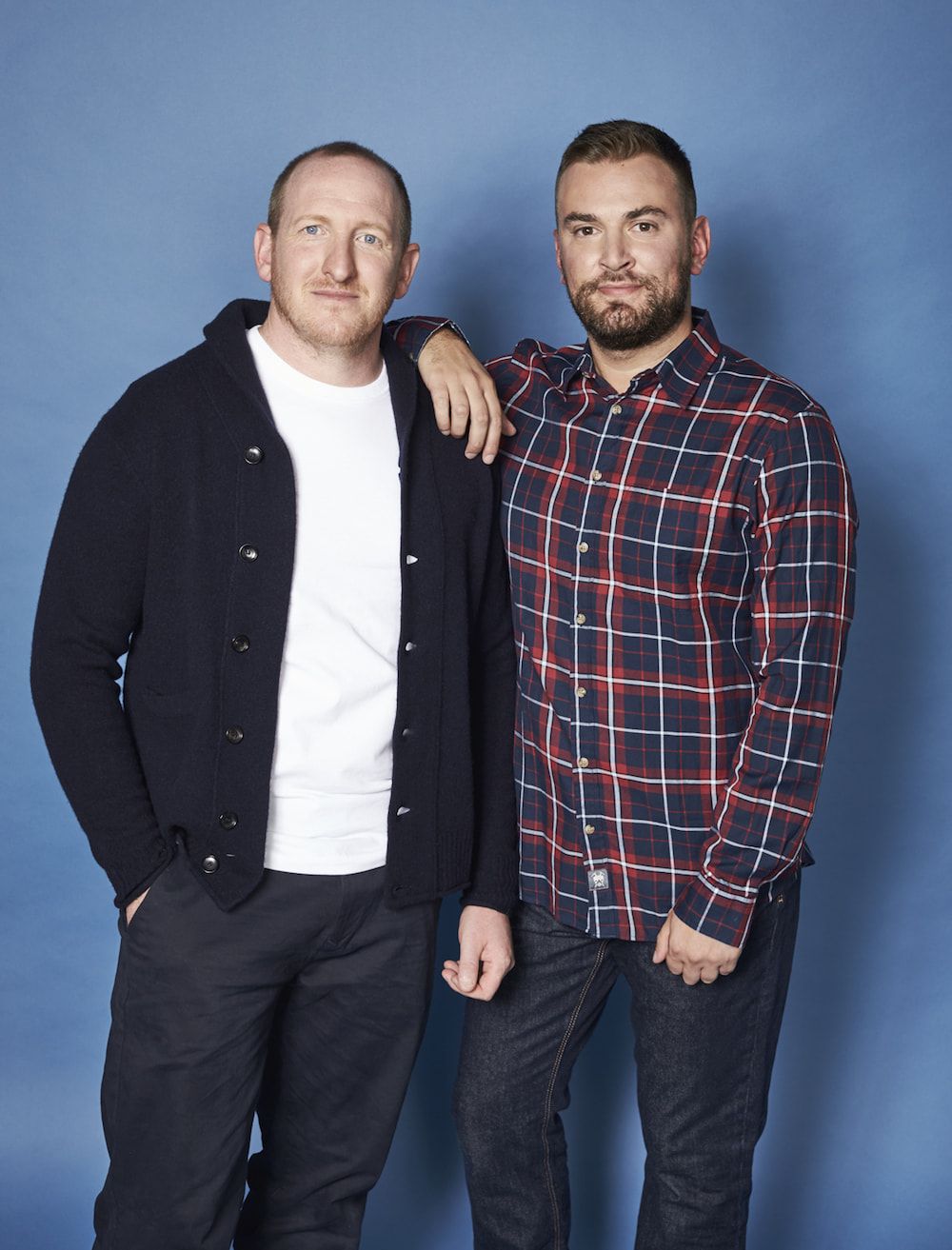
Neil Laybourn (left) and Jonny Benjamin (right) Photography | Joseph Sinclair
However, both Jonny and Neil are enthusiastic and ready to talk more when they arrive. When I mention how full-on their workload has been, Neil is keen to point out that they also actively prioritise their wellbeing and time off.
“August was a quieter month, so we’ve had some down time, which helps us to put our own self-care and mindfulness in place. Jonny’s been travelling, and I’ve been spending time with my family and newborn [six-month-old Sophia]. We’ve come into autumn re-energised and ready to ramp up the campaign work. There’s a lot of people we’ll be able to reach.”
Jonny adds: “We feel really privileged to have the conversations we do about mental health, and also the variety of places we travel to, and the people we get to meet.”
I ask if the constant focus on mental health and illness in their work life can be hard at times? Jonny considers the question. “I feel very lucky – but it can be overwhelming. Often you hear pretty sad stories, and a lot of it is about lack of access to services. I hear it time and time again; people are being let down. I don’t think we realise the scale of it.”
And the impact of this? “It can be difficult for me. I absorb it all, I go away and I constantly think about what I can do. There are so many people we speak to – family, friends, people who are bereaved by suicide. Every story is so tragic, and I do carry that around.”
It is understandable that these accounts of mental health stay with Jonny. He has spoken and written widely about his own diagnosis of schizoaffective disorder – a combination of schizophrenia and bipolar. His mission, now working with Neil too, is to help others and continue to campaign for better mental health provision and suicide prevention support, not just in the UK, but globally.
I feel very lucky – but it can be overwhelming. Often you hear pretty sad stories, and a lot of it is about lack of access to services. I hear it time and time again; people are being let down – Jonny
Jonny was originally diagnosed with schizophrenia, at the age of 20 – just a month before he and Neil met on London’s Waterloo Bridge, on a cold January day in 2008. Jonny had left a psychiatric hospital that morning with the intention of completing suicide. Neil stopped to talk, after seeing him sitting on the edge of the bridge, initially asking Jonny if he was alright.
After some prompting, Jonny told Neil about his diagnosis, and in turn Neil told him that he really believed he would get better. It was this statement of faith from a stranger, Jonny says, that was the turning point. He agreed to Neil’s suggestion of a coffee, moving away from the edge of the bridge, but the police swiftly intervened, taking Jonny to hospital where he was sectioned.
Neil continued his journey to work and his job as a personal trainer.
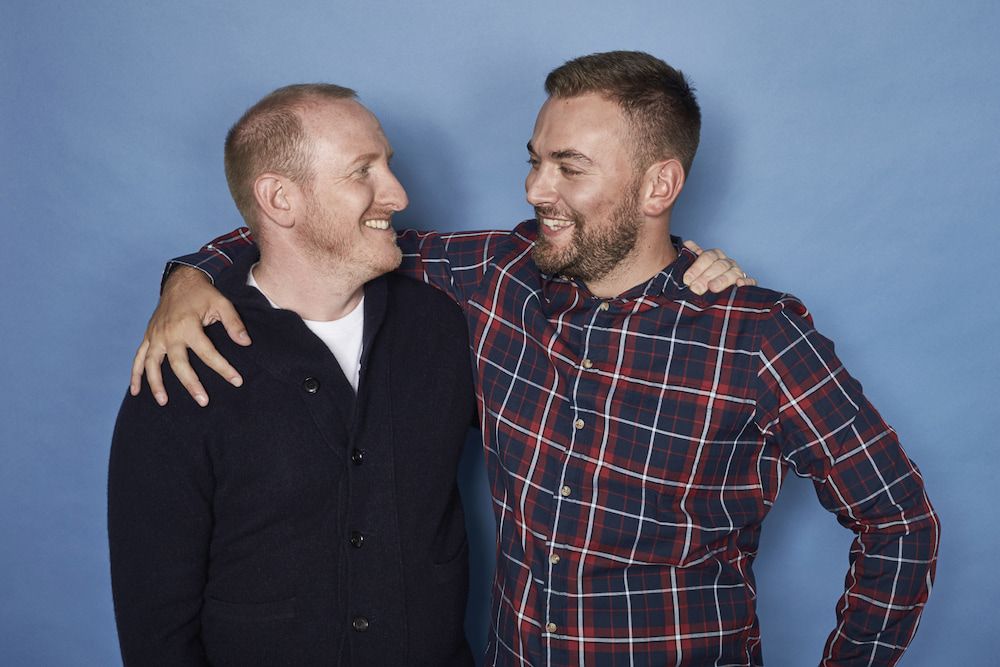
Photography | Joseph Sinclair
For both men, this must have been a startling end to their unexpected encounter. In a chapter of Jonny’s recently released book, The Stranger on the Bridge: My Journey From Despair to Hope, Neil tells of his experience: “I went straight into work mode. I didn’t explain why I was late; in fact I didn’t tell anybody about the incident for quite a while, except for [his wife] Sarah.”
Neil reflects back on how he processed his first meeting with Jonny. “I think I see it as the syndrome of being a man. Something really big and transformational happened – for me – for my part of the interaction. I was walking by, and I saw something I have never seen; I was having a conversation about suicide for the first time in my life, and my mind was going a thousand miles a minute.
“Afterwards, I did that thing a lot of guys do; my instinct was ‘push it to the back of your mind, no one wants to hear about your day’. I felt it was up to me to deal with what was happening in my own head. I know now it would have been healthier to speak to someone.”
However, Neil had the opportunity to address the events of that day, six years after their life-changing meeting in the middle of London. Jonny, working with Rethink Mental Illness and Channel 4, set about looking for Neil, and an international campaign #FindMike (Jonny didn’t know Neil’s name at the time) brought the two of them together, capturing the emotional reunion as part of a documentary.
Jonny and Neil’s journey has taken many twists and turns since their reunion. Together they have fronted mental health initiatives, run the London marathon for Heads Together, received awards and the highest accolades (HRH the Duke of Cambridge wrote a foreword for Jonny’s book), and made a real difference to a huge amount of people through their campaigning, writing, and speaking engagements.
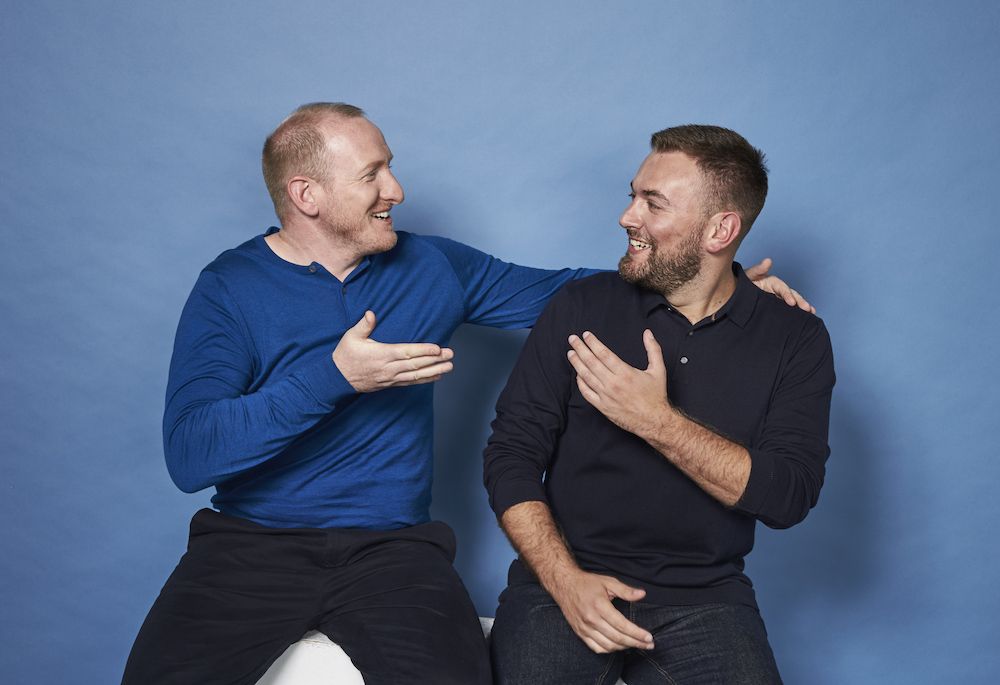
Photography | Joseph Sinclair
Both men are proud of everything they’ve achieved, and Jonny remains characteristically open about the impact the ever-growing workload has had on his mental health. “I found parts of last year very tough. There was one week where we went from Canada, to the US, to the UK non-stop, and I just cracked.”
“A wake-up call for me was my relapse last February. I had a psychotic episode in the middle of London, in public. Thankfully, Neil was with me, and got me to hospital. It was a horrible experience for us both.
“I knew it was coming; I kept saying to Neil, ‘We’ve got the London Marathon in April, I’ll keep going until after that,’ but the brain doesn’t work that way. It decides when enough is enough. I’ve learnt I have to prioritise my mental health.”
Neil nods in agreement. “There were times last year when you couldn’t turn up because you had your mental health to manage. This year you haven’t had to miss one engagement. Last year, we were trying to say yes to everything, and it was stressful for both of us – and you’re managing something I’m not. But this year is such a contrast, so you’re obviously doing something good with your self-care?”
It’s clear from this exchange – and from the rest of the time I spend with them – that Jonny and Neil have a great relationship. Their individual experiences and viewpoints make for a great combination, and both are equally passionate about their mission of eradicating stigma, and improving the help available for people experiencing mental ill-health and suicidal thoughts.
To read more of Jonny and Neil's exclusive chat with us, pick up the November issue of Happiful in supermarkets from Thursday 18 October.
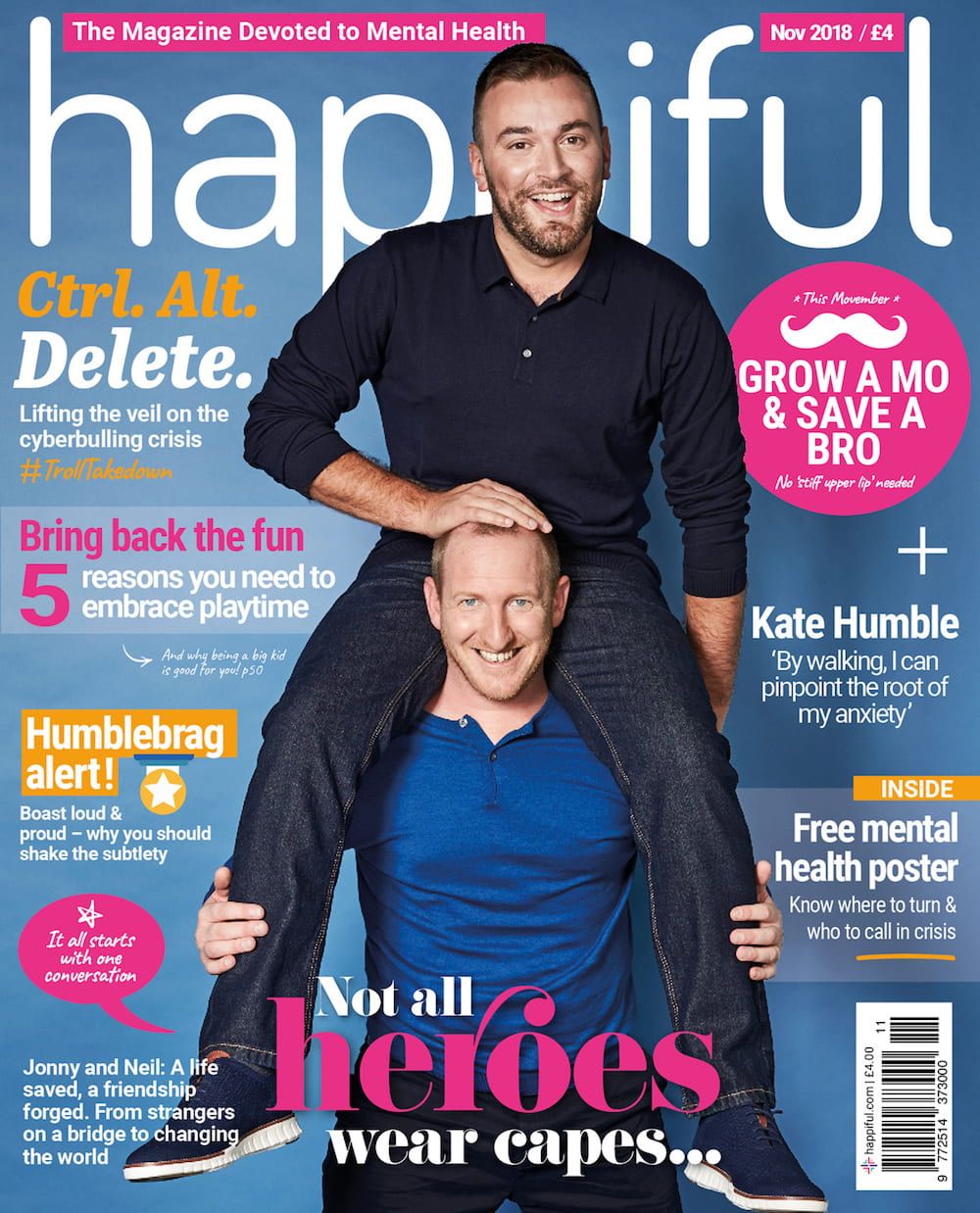
3 Ways to Get Happiful Magazine
In-store: Pick up your copy in Waitrose, Tesco, Morrisons or Asda. Find a store near you.
Online: Happiful is completely free to read digitally. To get our November issue in your inbox this Thursday, subscribe now.
Happiful shop: Can't see your copy of Happiful in a store near you? Head to our online shop.
Photography | Joseph Sinclair
Grooming | Amanda Clarke using Burt's Bees and Paul Mitchell
Styling | Krishan Parmar

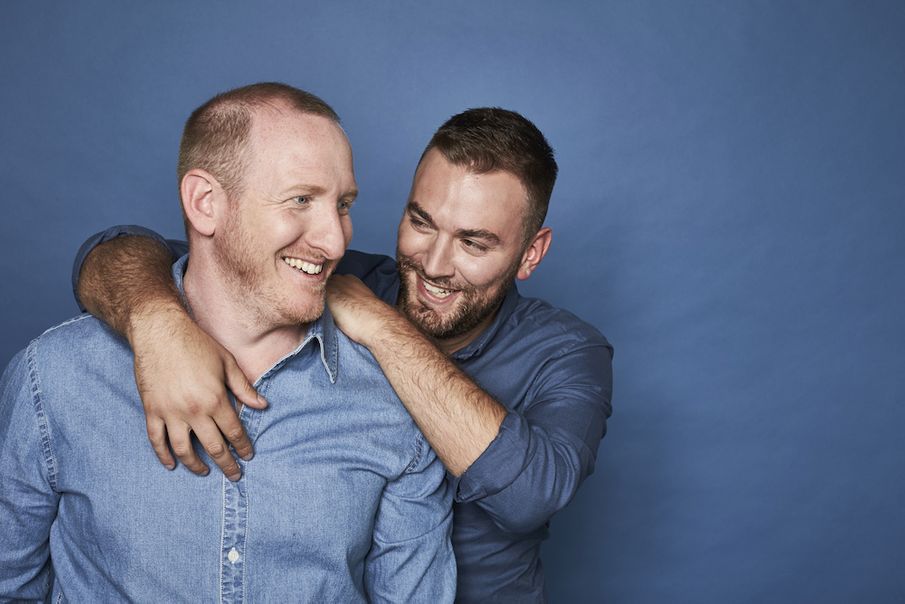
Comments